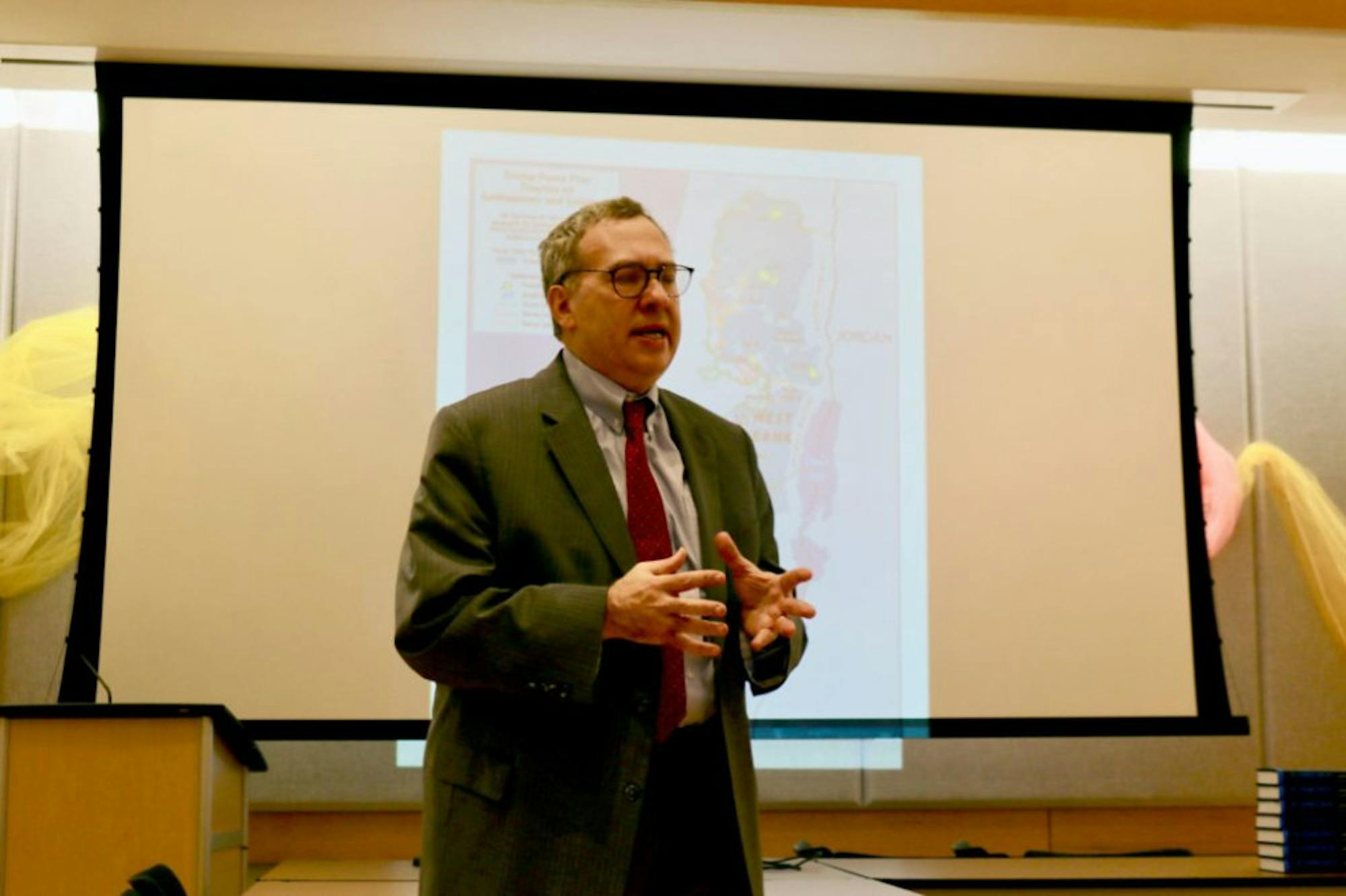
David Makovsky, an expert on Israel-Palestine relations, lauded President Donald J. Trump’s plan to ameliorate the Israel-Palestine conflict and promoted his new book, “Be Strong and of Good Courage” during a Monday night talk.
Emory Hillel hosted Makovsky, the Ziegler distinguished fellow at The Washington Institute for Near East Policy, for a discussion with Emory professor of Contemporary Middle Eastern History, Political Science and Israeli Studies Kenneth Stein about theoretical action steps of Israeli Prime Minister Benjamin Netanyahu and Israeli annexation.
Israel Chair of Hillel and President of the Emory-Israel Public Affairs Committee Ben Lefkowitz (22C) said that the event’s purpose was to add a new perspective to the current discourse surrounding the conflict, a discourse which he believes is one-sided.
“Our goal is to educate the community that there’s so much more beyond the black and white Israeli-Palestinian conflict,” Lefkowitz stated. “Last year, there was an incredible amount of contention between Students for Justice in Palestine, putting up fake eviction notices on people’s doors. … Statements are made, and then [opponents of Israel] are not willing to actually sit down and discuss it even though we’re on an educational campus.”
Trump’s plan, spearheaded by Trump’s son-in-law and adviser Jared Kushner, advocates for a two-state solution through an independent Palestinian state and the recognition of Israel’s claim over Jerusalem.
Makovsky, who served on the U.S. Secretary of State’s Israeli negotiating team during the Obama administration, said that Trump’s plan looks very different from the last three American attempts for Israeli-Palestinian peace, which began under the Clinton administration in 2000.
According to Makovsky, Trump’s plan marks a historical departure from previous administrations: it does not allocate all of the West Bank to Israel, as past programs have, and instead offers Israel complete sovereignty over the Jordan Valley and Jerusalem, except for the northern tip of the city, which would be under Palestinian control.
Makovsky asserted that the Trump administration’s plan benefits Israel more than past proposals because it argues for more Israeli territory in the West Bank, Jordan Valley and Jerusalem. The plan comes late into Trump’s presidency because the three recent Israeli elections have interfered with stable diplomacy and other priorities in the Middle East such as relations with Syria and Iran, Makovsky stated.
Makovsky admitted, however, that the plan would probably not be met with Palestinian support, though its purpose stands to present Palestine with a forced choice: “If you don’t say yes, you get less,” he said.
Makovsky also hopes that Trump’s proposal will teach Palestiniane that the world is impatient with the current absence of a peace deal.
The success of the plan is contingent on Trump’s re-election, Makovsky reasoned, as it will be “nearly impossible” for Palestinians to boycott a plan for another four years.
Despite his desire for peace in the region, Makovsky believes that the conflict will not be solved with just one presidential plan.
“I don’t believe in a grand deal because there’s too much that can go wrong,” Makovsky stated. “Whenever [the question of peace is posed] in the Middle East, it’s all or nothing — it’s always nothing.”
In a Q&A session that followed Makovsky’s speech, attendees inquired about Israeli Prime Minister Benjamin Netanyahu’s annexation efforts and the potential reactions from the Arab states over hypothetical peace situations.
“I believe we’ve got to give people some inspiration [about peace], and that’s why I’m hoping they read [my] book,” Makovsky told the Wheel in an interview after the event.






